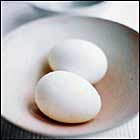|
Very
often in the gym I come across newcomers who have little idea about
what to do or how to start an exercise regime. True, all gyms have-or
at least are supposed to have-trained instructors who can guide
newbies, introducing them to an exercise regime that would suit
them but more often than not that just doesn't happen and many newcomers
are pretty much left to their own devices. And that can be disastrous.
I've seen gym greenhorns do dangerous stuff with weights and know
of a couple of cases where grievous injuries have resulted because
of that. With that in mind, this edition of the column provides
a checklist for newcomers to the gym.
Consult your doc. Or
better still, go in for a comprehensive medical check-up-especially,
blood pressure, heart condition, reflexes, the condition of your
back, joints, etc. Does your doctor approve a weight-training regime
for you? If he does, are there any caveats? For instance, if you
suffer from spondylosis or have a back problem, what are the exercises
you must avoid? Get a clean chit from your doctor before you hit
the gym.
Always warm up. It's
important to raise your core body temperature (that means increasing
the oxygen supply to your muscles) so that your muscles are relaxed
and ready for a period of activity. A good warm-up can also prepare
your lungs and heart for exercise. A five-to-seven minute brisk
jog or even power walking is good enough.
Don't forget to stretch.
Stretching your muscles before you pick up the weights helps
in further warming up your body and also prepares the muscles for
exercise without injuries. Stretch your shoulders, back, legs and
chest muscles before beginning your reps. In a future instalment
of this column, I will introduce a series of simple stretches that
may help.
Less is more. Many
newbies, particularly men, try to impress others in the gym by trying
to lift more weight than they should. Instead of big muscles, this
can cause big injuries. The correct way is to start with moderate
weights and over a period of time keep raising the weight you lift.
And don't give a damn what others are doing or what they think of
you.
Slow and steady. Avoid
jerky movements. For instance, if you're doing biceps curls using
dumb-bells, move your arm smoothly and slowly and remember that
it is as important to lower your arm slowly as it is to raise it.
Jerky movements or movements that are too fast can cause injuries.
Eat right. Workouts
are meaningless if you don't eat well. Eat healthy food and try
to eat several small meals rather than one or two huge ones. Without
a good diet, workouts can never give you strength and muscle mass.
Get a spotter. I've
seen newbies at the gym not sticking to proper form, especially
when it comes to posture while exercising. This can cause long-term
problems. Get somebody to spot (ensure your form is correct) you
in the gym.
Don't over-train. Don't
over-exercise your muscles. If you do, it could be counter-productive-leading
to muscle mass loss rather than gain. A thumb-rule to follow: exercise
two body parts a day, four days a week.
Drink water. Or
else you could get dehydrated while working out. And remember, water
is the biggest constituent of your body.
Cool down. It's
as important as warming up. After a workout, give your body a chance
to get back to normal. Don't exert yourself and take it easy till
your breathing is back to normal after a strenuous workout.
-Muscles Mani
-Write to musclesmani@intoday.com
THE
EGG FACTFILE
Getting late for work and want a quick bite?
Boil an egg.
 WHY
EGGS: Shikha Sharma, weight management consultant, explains:
"An egg has the highest biological value because it has six-to-seven
grams of protein in the egg white and Vitamin E in the yolk."
Egg whites, which contain the protein Albumin, are safer. Says Dr.
Rekha Sharma, Chief Dietician, AIIMS, "It is actually safe
to eat two egg whites every day. Albumin is a good quality protein;
it gets fully absorbed and nothing is dispersed." WHY
EGGS: Shikha Sharma, weight management consultant, explains:
"An egg has the highest biological value because it has six-to-seven
grams of protein in the egg white and Vitamin E in the yolk."
Egg whites, which contain the protein Albumin, are safer. Says Dr.
Rekha Sharma, Chief Dietician, AIIMS, "It is actually safe
to eat two egg whites every day. Albumin is a good quality protein;
it gets fully absorbed and nothing is dispersed."
However, eating eggs with yolk three-to-four
times a week is acceptable if you don't have coronary artery disease
and don't consume too much of trans fatty acids (which are solid
at room temperature) like ghee or dalda.
WHO SHOULD AVOID:
Eating an egg has to do with understanding your individual body
type, age, gender (safer for women), reaction to eggs (some people
are allergic), the climate (people in hotter climes would do well
to avoid eggs), the amount of exercise and state of health.
Also, you should reduce the intake of eggs
as you grow older because the body gradually loses its ability to
handle the cholesterol present in egg. "Cholesterol patients,
smokers, people with blood pressure and a family history of heart
attacks should watch it," warns Dr. Rajnish Sardana, Chief
Cardiologist, Metro Hospital and Heart Institute.
And yes, whether you prefer egg whites or yolks,
or both, do exercise some moderation.
-Amanpreet Singh
|
